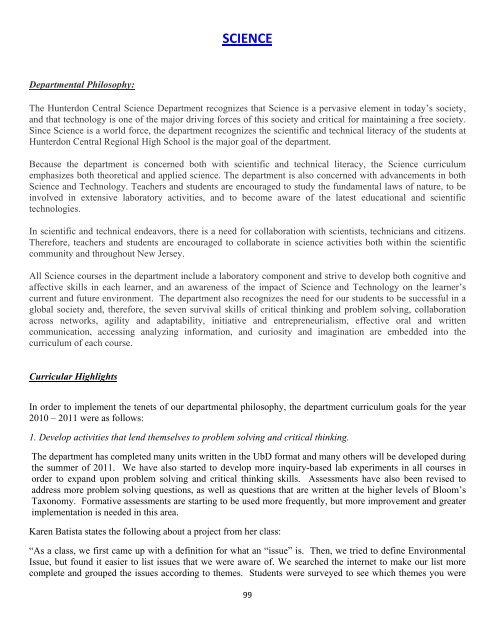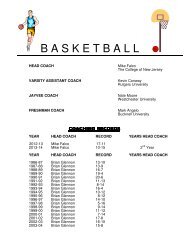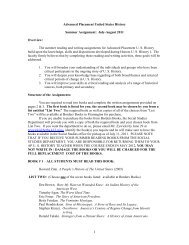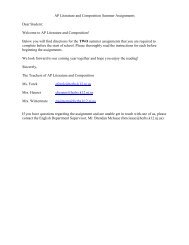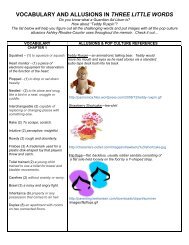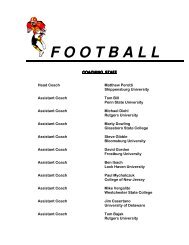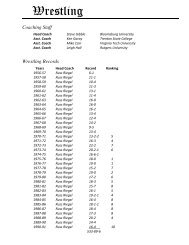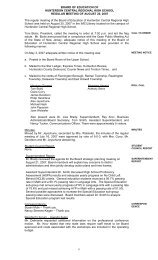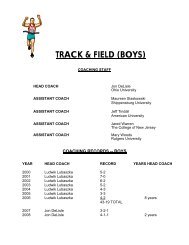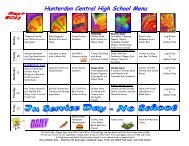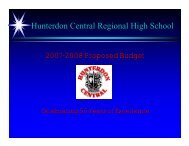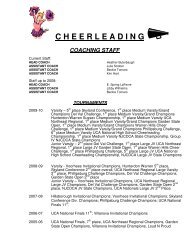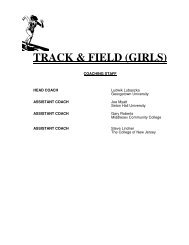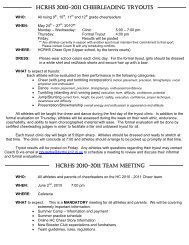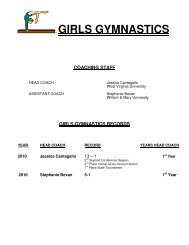HUNTERDON CENTRAL REGIONAL HIGH SCHOOL DISTRICT
HUNTERDON CENTRAL REGIONAL HIGH SCHOOL DISTRICT
HUNTERDON CENTRAL REGIONAL HIGH SCHOOL DISTRICT
Create successful ePaper yourself
Turn your PDF publications into a flip-book with our unique Google optimized e-Paper software.
SCIENCE<br />
Departmental Philosophy:<br />
The Hunterdon Central Science Department recognizes that Science is a pervasive element in today’s society,<br />
and that technology is one of the major driving forces of this society and critical for maintaining a free society.<br />
Since Science is a world force, the department recognizes the scientific and technical literacy of the students at<br />
Hunterdon Central Regional High School is the major goal of the department.<br />
Because the department is concerned both with scientific and technical literacy, the Science curriculum<br />
emphasizes both theoretical and applied science. The department is also concerned with advancements in both<br />
Science and Technology. Teachers and students are encouraged to study the fundamental laws of nature, to be<br />
involved in extensive laboratory activities, and to become aware of the latest educational and scientific<br />
technologies.<br />
In scientific and technical endeavors, there is a need for collaboration with scientists, technicians and citizens.<br />
Therefore, teachers and students are encouraged to collaborate in science activities both within the scientific<br />
community and throughout New Jersey.<br />
All Science courses in the department include a laboratory component and strive to develop both cognitive and<br />
affective skills in each learner, and an awareness of the impact of Science and Technology on the learner’s<br />
current and future environment. The department also recognizes the need for our students to be successful in a<br />
global society and, therefore, the seven survival skills of critical thinking and problem solving, collaboration<br />
across networks, agility and adaptability, initiative and entrepreneurialism, effective oral and written<br />
communication, accessing analyzing information, and curiosity and imagination are embedded into the<br />
curriculum of each course.<br />
Curricular Highlights<br />
In order to implement the tenets of our departmental philosophy, the department curriculum goals for the year<br />
2010 – 2011 were as follows:<br />
1. Develop activities that lend themselves to problem solving and critical thinking.<br />
The department has completed many units written in the UbD format and many others will be developed during<br />
the summer of 2011. We have also started to develop more inquiry-based lab experiments in all courses in<br />
order to expand upon problem solving and critical thinking skills. Assessments have also been revised to<br />
address more problem solving questions, as well as questions that are written at the higher levels of Bloom’s<br />
Taxonomy. Formative assessments are starting to be used more frequently, but more improvement and greater<br />
implementation is needed in this area.<br />
Karen Batista states the following about a project from her class:<br />
“As a class, we first came up with a definition for what an “issue” is. Then, we tried to define Environmental<br />
Issue, but found it easier to list issues that we were aware of. We searched the internet to make our list more<br />
complete and grouped the issues according to themes. Students were surveyed to see which themes you were<br />
99


